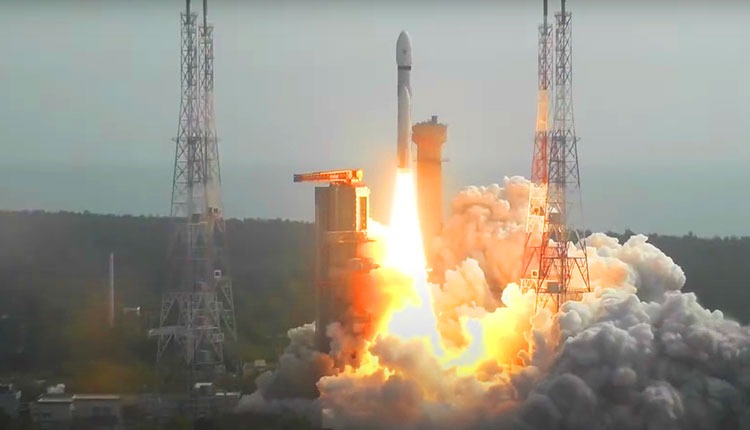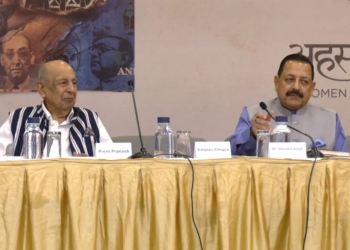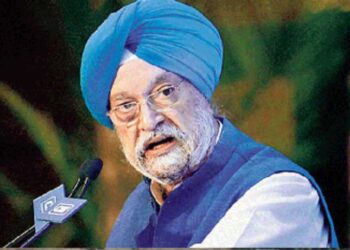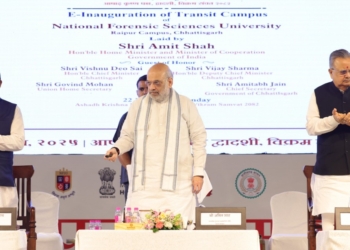Sriharikota (Andhra Pradesh): India’s LVM3 rocket on Sunday lifted off with 36 satellites of the UK-based “OneWeb” from the rocket port here.
The 43.5-metre tall LVM3 rocket that weighs 643 ton is carrying 36 satellites, totally weighing 5,805 kg or about 5.8 ton. It blasted off from the second launch pad at the Satish Dhawan Space Centre at 9 a.m.
The Indian Space Research Organisation (ISRO) has named the mission as LVM3-M3/OneWeb India-2 Mission.
The LVM3 (formerly GSLV-Mk III) is a three-stage rocket with the first stage fired with liquid fuel, the two strap on motors powered by solid fuel, the second by liquid fuel and the third is the cryogenic engine.
The ISRO’s heavy lift rocket has a carrying capacity of 10 ton to the low earth orbit (LEO) and four ton to the Geo Transfer Orbit (GTO).
The LVM3 had five consecutive successful missions, including the Chandrayaan-2 mission, till now.
Just more than 19 minutes into the rocket’s flight, the separation of 36 satellites of Network Access Associated Ltd. (OneWeb) in LEO will begin.
The satellites will be placed into a 450-km circular orbit with an inclination of 87.4 degrees.
If the mission is successful, the total number of foreign satellites launched by India would go up to 422 starting from 1999.
This will be the OneWeb’s final instalment of 36 Gen1 satellites. Once the mission is successful, the UK company backed by India’s Bharti Group and the UK government will have 618 satellites orbiting in space. OneWeb has 582 satellites now in orbit.
By completing the constellation, OneWeb is taking a pivotal step forward in delivering global coverage, including India, the company had said.
The Sunday launch is the 18th for OneWeb.
ISRO’s commercial arm, NewSpace India Ltd (NSIL) has signed a contract with OneWeb to launch 72 satellites in two phases for a launch fee of more than Rs 1,000 crore, OneWeb Chairman Sunil Bharti Mittal had said in October 2022.
The first batch of 36 satellites was launched on October 23, 2022, from Sriharikota rocket port in Andhra Pradesh with the LVM3 rocket formerly known as Geosynchronous Satellite Launch Vehicle MkIII (GSLV MkIII).
OneWeb Gen-1 satellites belong to the 150 kg class. The constellation comprises 648 individual satellites. Out of that, 588 active satellites equally divided among 12 planes operate at an altitude of about 1200 km above the earth’s surface.
Each plane is separated in altitude by 4 km to prevent inter-plane collision.
The payload is a bent-pipe system operating in Ku and Ka band. The forward link receives Ka-band signals from the gateway through the satellite Ka antenna. The return link receives Ku-band signals from the User Terminals (UTs) via the satellite Ku antenna, ISRO said.
(IANS)














